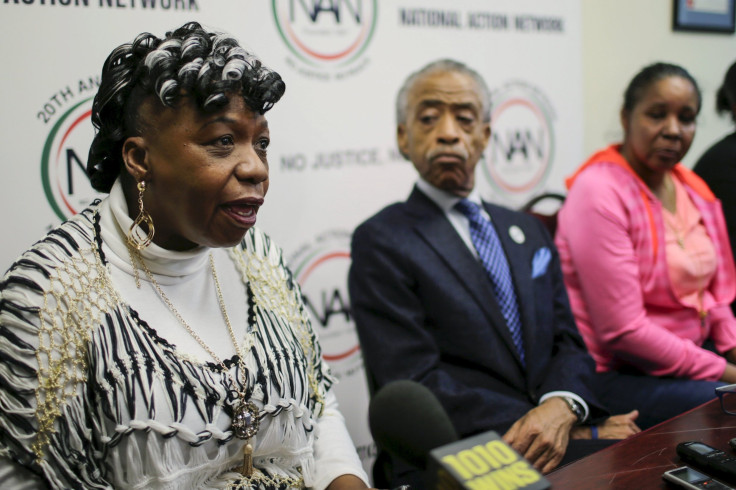Freddie Gray Protest Update: Al Sharpton Thanks Mosby For Police Arrests; Announces He'll Lead March From Baltimore To Washington D.C.

The Rev. Al Sharpton announced Saturday a march to Washington from Baltimore would be held this month while saying he was thankful for the arrests of the six police officers charged with involvement in the death of the African-American man Freddie Gray, 25, who suffered a fatal injury while in their custody. The civil-rights activist also urged the adoption of a federal law that would require all police officers in the U.S. to wear body cameras to “protect both the citizens and the officers” in a speech at the headquarters of his National Action Network (NAN) in New York.
Sharpton discussed the important roles amateur videos have played in recent police incidents in providing immutable evidence of police misconduct. “They would have called Eric Garner a liar if it weren’t for that video. They would have called Walter Scott a liar if it weren’t for that video. These six officers would not have been charged if it weren’t for that video,” he said. “The only [person] that doesn’t want a camera is someone that has something to hide.”
Garner and Scott were both killed during confrontations with police, with videos of their deaths uploaded to various websites and viewed millions of times. Garner’s mother, Gwen Carr, and his widow, Esaw Garner, were in attendance Saturday, NAN said in a statement.
In his speech, Sharpton called for a nationwide voter-registration campaign to enroll minority voters. He described voting as a critical step in elevating the concerns of America’s minority population, citing the decision of Marilyn J. Mosby, the recently elected Baltimore City state’s attorney, to charge the six officers involved in Gray’s arrest and detention as proof that electing the right public officials can lead to change.
Sharpton has been one of the strongest voices advocating for a shift in police-community relations in the past year, traveling to a number of cities across the U.S. where black Americans have died during encounters with police officers. The sometimes-divisive figure has been criticized by some who say he takes advantage of tragedy for political gain, but he remains a strong figure in the movement for local and national change.
Baltimore exploded in violent protests Monday night after Gray’s funeral. More than a dozen buildings and 140 vehicles were burned by deomnstrators angry over inequality along racial lines and police misconduct in the city. Gray died of a traumatic spinal injury sustained in the back of a police van transporting him to a police station following his arrest April 12. The Baltimore Police Department handed over a report to state prosecutors under Mosby to continue the investigation into Gray’s death.
National leaders such as U.S. President Barack Obama condemned the violence, but urged Americans to engage in necessary discussions about race and police-community relationships across the country. Protests have been largely peaceful since Monday night, but a curfew enacted in Baltimore remains in place for Saturday night. City authorities have not decided whether to extend the curfew into next week.
U.S. Sen. Bernie Sanders, I-Vt., a presidential candidate seeking the Democratic Party's nomination in the 2016 election, also spoke before the NAN this week, as did NAACP representatives and prominent black scholars.
© Copyright IBTimes 2025. All rights reserved.






















